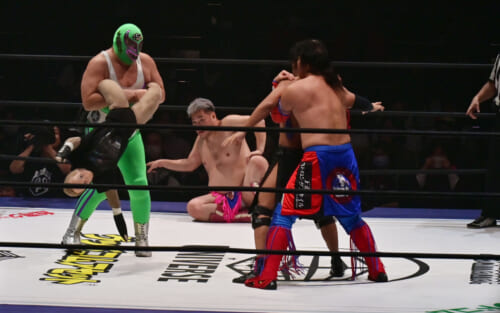Japan is a country where politeness is deeply woven into daily life, and apologizing is one of its most important cultural expressions. With a wide range of official forms of apology, each with its own variation, Japanese people are true masters at saying “I’m sorry.” For non-native speakers, it can sometimes be challenging to know which phrase to use. Should it be casual or formal? Friendly or respectful?
Apologies in Japanese go far beyond a simple “gomennasai” or “sumimasen.” Choosing the right word depends on the context, situation, and the person you’re speaking to.
In this guide, we’ll explain the most common Japanese apologies, how to use them correctly, and what level of politeness they convey.
Everyday Apologies in Japanese
Daily life in Japan offers countless situations where an apology is appropriate: when you make a mistake, when someone helps you, when you receive a gift, or even when someone holds the door open. Unlike in many other cultures, expressing regret or gratitude through apology is part of showing respect.
Sumimasen: Excuse me / I’m sorry
Sumimasen すみません is probably the most common way to apologize in Japanese and means something like “Excuse me.” You can use sumimasen if, for example, you’ve stepped on someone’s foot or in a restaurant when you’re calling for the waiter. Even if you have to push your way out of a crowded train, this type of apology is your best friend.
In everyday conversations with friends or family members, sumimasen is often used in a modified form. However, please note that you should never use the modified form suimasen with your supervisor. The variants suman or sumanai, often used by men, also have no place in the workplace.
A more formal version of sumimasen is sumimasen deshita, which you can use with your superior, or when you’ve made a bigger mistake than just stepping on someone’s toe. Adding “deshita” means sumimasen is used in the past tense and can be translated as “I apologize for what I did.”
Gomennasai: Please forgive me
Just like sumimasen, the apology gomennasai ごめんなさい is also an integral part of everyday Japanese life. A closer look at the word reveals that the kanji of the syllable “men” in “gomen” 御免 translates to “forgiveness.” The various variations of the word, gomen, gomennasai, and gomen kudasai (a more formal version belonging to keigo), can therefore be viewed as direct admissions of guilt with which one now seeks forgiveness.
These polite forms of gomen can be translated as “Please forgive me.” Gomen, on the other hand, should only be used for close friends and acquaintances.
Sumimasen and gomennasai are both appropriate ways of expressing an apology in Japanese, although gomennasai is more preferred due to its explicit indication of guilt, especially when speaking to superiors.
Ojama shimasu: Sorry to intrude
This type of apology isn’t used in the context of a mistake, but rather to announce your presence. Ojama shimasu おじゃまします can be translated as “I’m disturbing” and is generally used when, for example, you’re entering someone else’s house or apartment. Mailmen or tradesmen entering your home also usually announce their arrival this way. Unlike the previously mentioned apologies, ojama shimasu is used colloquially and doesn’t have a superlative level of politeness.
Formal and Business Apologies in Japanese
As we’ve already learned, sumimasen and gomennasai can also be used in the workplace. However, the following types of apologies are far more common when you’re talking to customers, your boss, or colleagues.
Shitsurei shimasu: Excuse my rudeness
The word shitsurei 失礼 itself is translated as “rude,” but can also mean “loss of respect.” With the phrases shitsurei and shitsurei shimasu, you can imply your desire for forgiveness for your own rudeness. Shitsurei shimasu is also used when leaving a room in the presence of someone of a higher rank. For example, the consulting room after a doctor’s appointment or the office while your colleagues are still working. In this case, you can say Osaki ni shitsurei shimasu お先に失礼します, which can be roughly translated as “Excuse me for leaving before you.”
Photo: Christian Chen
Shitsurei shimashita and Shitsurei itashimashita (keigo forms), as previously mentioned with sumimasen deshita, are considered more polite past tenses, recommended for work-related situations. They are often used in a business setting.
Moushiwake arimasen: I have no excuse
Less well-known among non-native speakers, but no less frequently used, is the apology form: moushiwake arimasen. Moushiwake 申し訳 means “excuse,” which is why the phrase moushiwake nai or moushiwake arimasen and their keigo equivalents moushiwake gozaimasen can be interpreted as “no excuse,” meaning that one can justify and excuse one’s own actions.
Moushiwake gozaimasen deshita would be the most polite expression of the three different forms, but—as you might have already expected—the past tense further increases the level of politeness. It is used when you have made a serious mistake at work, for example, and is usually used in conjunction with a deep bow.
Makoto ni moushiwake gozaimasen deshita: I sincerely apologize
Less common is the phrase makoto ni moushiwake gozaimasen deshita 誠に申し訳ございませんでした, which refers to a serious mistake. This type of apology can be interpreted as follows: “There is no excuse for my mistakes; I am entirely responsible for this misfortune, and I sincerely apologize.” However, as already mentioned, you will rarely encounter this apology in everyday life.
From casual phrases like sumimasen to deeply formal expressions such as makoto ni moushiwake gozaimasen deshita, knowing how to say I’m sorry in Japanese is essential for navigating social and professional life in Japan. If you want to explore more about the Japanese language and culture, check out our other guides!
Original article from May 2, 2016








No Comments yet!